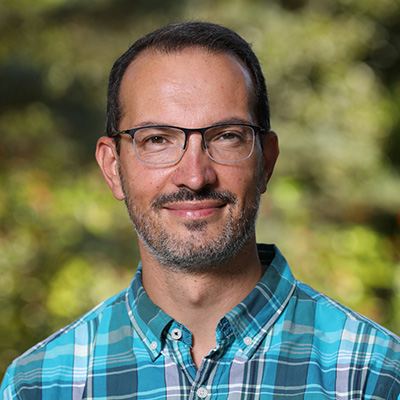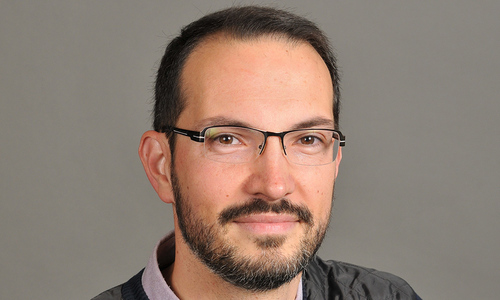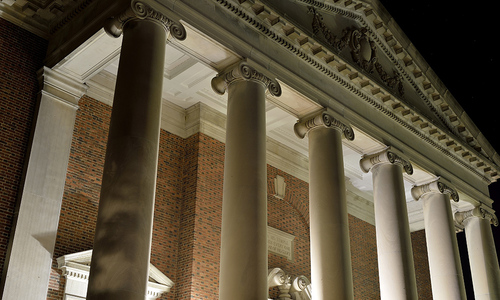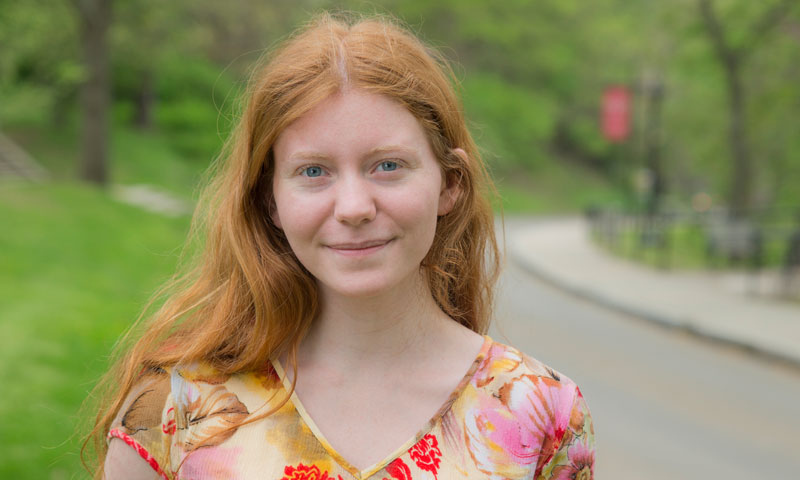
Quentin Hedges Duroy
I am a professor of economics at Denison University. I joined our college in 2004. I serve on the Environmental Studies and International Studies program committees. In the spirit of the liberal arts, my pedagogy is pluralist and integrative. My main goal as a teacher is to create an environment in which students develop excitement and curiosity about learning, process complex ideas, use their acquired knowledge to make sense of their world and feel safe and empowered to share their ideas with each other. My intent is for students to become reflective adults who are intellectually and professionally prepared to evaluate, and to participate in, any argument or debate about socio-economic issues; to analyze problems from multiple perspectives; and to propose a broad range of solutions.
Learning & Teaching
- ECON 101 – Introductory Macroeconomics
- ECON 301 – Intermediate Macroeconomic Analysis
- ECON 202 – Economic Growth and Environmental Sustainability (cross-listed with ENVS 202)
- ECON 417 – The Eurozone: Optimal Currency Area or Incomplete Monetary Union?
- ECON 440 – Thinking like a Nobel Laureate: When Economic Analysis Reflects Liberal Arts Principles
Research
In an epoch (the Anthropocene) in which human activities influence the balance of life on the planet, the decisions made by individuals and societies regarding their use of resources, and the policies and institutions they design must be informed by scientific work, and by collective action, that acknowledge the finiteness of natural systems and our shared humanity. However, the development of an effective cooperative framework has been undermined by the influence of neoliberal thought and policies, in the West in particular, but also increasingly around the world. While neoliberal reforms emphasize globalization, they are divorced from concerns for the global commons and the common good, and thus, have been anathema to finding effective collective solutions to address climate change and other societal issues such as inequality and well-being. In this context, my recent work has examined the impact of neoliberal ideology on a number of areas such as environmental education and climate change, the rise of nationalism, the erosion of tenure in higher education, and governmental regulation in controversial sectors of the economy (with a recent focus on gambling).
Works
Selected Publications
- Duroy, Quentin (2020). The Rise of Neo-nationalism in Europe: A Veblenian Perspective. Journal of Economic Issues 54(4): 987-1001.
- Wisman, Jon D. and Quentin Duroy (2020). The Proletarianization of the Professoriate and the Threat to Creativity, Free Expression and Economic Dynamism. Journal of Economic Issues 54(3): 854-872.
- Marouli, Christina and Quentin Duroy (2019). Reflections on the Transformative Power of Environmental Education in Contemporary Societies: Experience from Two College Courses in Greece and the USA. Sustainability, 11(22): 6465.
- Duroy, Quentin and Jon D. Wisman (2019). Privatisation de la Française des Jeux : Mauvaise Pioche. Délibérée 6(1): 28-32.
- Duroy, Quentin and Jon D. Wisman (2017). Le Monopole de l’État Français sur les Jeux d’Argent: De l’Art d’Extorquer des Fonds aux plus Démunis. Revue de la Régulation 22.
- Duroy, Q. (2017) Hyper-individualism and Ultrasociality in a Veblenian Framework. Ecological Economics 131: 538-542.
- Duroy, Q. (2016). Thinking like a Trader: The Impact of Neoliberal Doctrine on Habits of Thought. Journal of Economic Issues 50(2): 603-610.
- Marouli, C. and Duroy, Q. (2014). The Nexus between Climate Change and Social Practices: Theoretical and Empirical Reflections for Policy-Making. Seton Hall Journal of Diplomacy and International Relations 15(3): 131-145.
- Duroy, Q. (2014). Neoliberal Europe: Enabling Ethno-Cultural Neutrality or Fueling Neo-nationalist Sentiment? Journal of Economic Issues 48(2): 469-476.
- Duroy, Q. (2011). The Path to a Sustainable Economy: Sustainable Consumption, Social Identity and Ecological Citizenship. International Journal of Green Economics 5(1):1-14.


